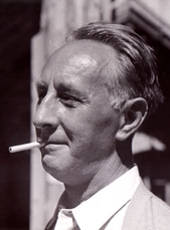

Bohuslav Martinů
The Epic of Gilgamesh
Short instrumentation: 2 0 2 0 - 0 3 2 0 - timp, perc(4), hp, pno, str
Duration: 50'
Übersetzer: Ferdinand Pujman, R. Campbell Thompson, Arnold Heinz Eichmann
Text bearbeitet von: Bohuslav Martinů
Dedication: Maja Sacher
Choir: SATB
Solos:
soprano, tenor, baritone, bass
Instrumentation details:
1st flute
2nd flute
1st clarinet in Bb
2nd clarinet in Bb
1st trumpet in C
2nd trumpet in C
3rd trumpet in C
1st trombone
2nd trombone
timpani
percussion(4)
harp
piano
violin I
violin II
viola
violoncello
contrabass
Martinu - Das Gilgamesch-Epos for soli, mixed choir and orchestra
Printed/Digital
Translation, reprints and more

Bohuslav Martinů
Martinu: Das Gilgamesch-EposOrchestration: for soloists, mixed choir (SATB) and orchestra
Type: Partitur
Language: Deutsch | Englisch
Print-On-Demand

Bohuslav Martinů
Martinu: MARTINU EPIC OF GILGAMESCH VocScOrchestration: for soloists, mixed choir (SATB) and orchestra
Type: Klavierauszug
Language: Deutsch | Englisch
Print-On-Demand
Sample pages
Audio preview
Work introduction
The Epic of Gilgamesch is a large Assyrian-Babylonian poem written in cuneiform script on clay tablets probably dating back to the 7th century BC or even to earlier times.
Despite our enormous progress due to technology and industrialisation I thought that the questions and feelings which preoccupy people are still the same. We find these topics in the literature of ancient peoples which has survived as well as in our own. They revolve around friendship, love and death. The Gilgamesch-Epos expresses intensely and with almost painful anxiety the wish to find answers to these questions, answers we have still not found.
My composition deals with the following events: Gilgamesch, the great king of Uruk, is dreaded and worshipped like a god. He becomes the friend of a strange man named Enkidu who is the original man in his natural state. For a long time he has lived ignorantly and carelessly. The animals he defended were his friends. To win the faith of this dangerous opponent Gilgamesch sends a woman to him, a dancer from the temple of Istar, who seduces him. Having lost his innocence, the animals fear Enkidu and flee as soon as he approaches. He follows the woman to the town where you eat bread and drink wine, where you go dancing and partying. His way of life changes immediately but he understands that he has to work to make his living. He becomes pale. There comes a moment when he remembers his youth with regret. He fights against Gilgamesch but finally they become comrades in arms. The heroes become close friends.
One day Enkidu falls ill. Gilgamesch observes him - for one day, two days, eleven days; then he does not move, he is dead. The question of death, previously unknown to Gilgamesch, arises. He does not understand that Enkidu is gone for ever, "that it was the earth who took him away". He starts to worry about himself and his life. He implores the gods to give him back his friend. But the gods stay silent, he does not get a reply. Gilgamesch begins to search for immortality but he now knows: "Only gods live for ever, the days of human beings are numbered. Therefore you should always enjoy yourself, day and night, be happy and content, night and day".
He utters passionate pleas, he implores the gods to allow him to meet his friend Enkidu again, if only for a moment. By the power of his entreaty the earth opens and Enkidu's ghost appears like smoke. Gilgamesch asks him anxiously what he has seen in this other, unknown world. The epos ends with this dramatic and extremely gloomy monologue.
Bohuslav Martinu
Translation: Dorit Luczak
